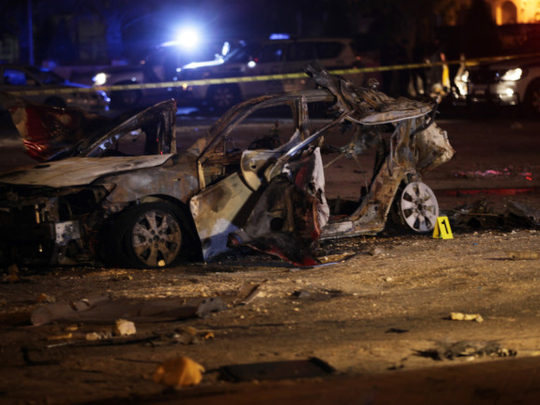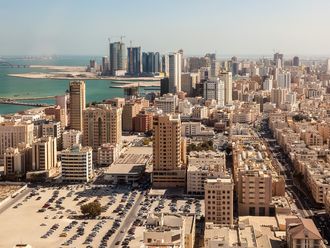
Manama: A car bomb attack wounded four Bahraini policemen in a Shiite village near the capital Manama, the authorities in the kingdom said on Friday.
Bahrain has been rocked by sporadic violence since pro-democracy protests started by its Shiites in 2011.
In the latest unrest, assailants remotely detonated a bomb as a police patrol passed by the car in which it had been planted in the village of Sahla on Thursday night, said the interior ministry.
“Four policemen were slightly wounded” in the explosion, said the ministry, adding that an investigation had been launched to find the perpetrators of the “terrorist act”.
Clashes erupted in Shiite-populated villages around Manama on Thursday evening when riot police intervened to disperse demonstrations called by the opposition February 14 Coalition youth group, witnesses said.
The protesters hurled firebombs and stones at the security forces, who responded by firing tear gas and stun grenades. The latest unrest came two days after the resumption of a national dialogue aimed at ending the political deadlock, following a two-month summer break.
On August 17, five police officers were wounded when an explosive device went off during clashes with opposition protesters in the Shiite village of Dair, north of Manama.
Bahrain is the home base of the US Fifth Fleet and Washington is a long-standing ally of the ruling family.
Demonstration
Yesterday, thousands of opposition supporters demonstrated in a Shiite village near the Bahraini capital, witnesses said.
Supporters of the February 14 Coalition youth group demonstrated in Jad Fahs outside Manama demanding “democratic changes.” Bahrain launched in July 2011 a national dialogue to help address a deep political and social fissure caused by sharp divisions over the merit of the month-long events that unfolded in the country in February and March.
The meetings agreed on several recommendations, but the political issues lingered and a new call was issued by King Hamad Bin Eisa Al Khalifa to resume the talks. On February 10, the talks resumed with the participation of 27 delegates from two political alliances, the parliament and the government.
However, more than four months later, there was no agreement on the platform or the agenda of the talks. “We need to address issues clearly and be very open about them. Stalling the sessions and repeating some points over and over again will not help with the dialogue,” said Abul, a rights activist who heads the Bahrain Institution for Human Rights (NIHR).












